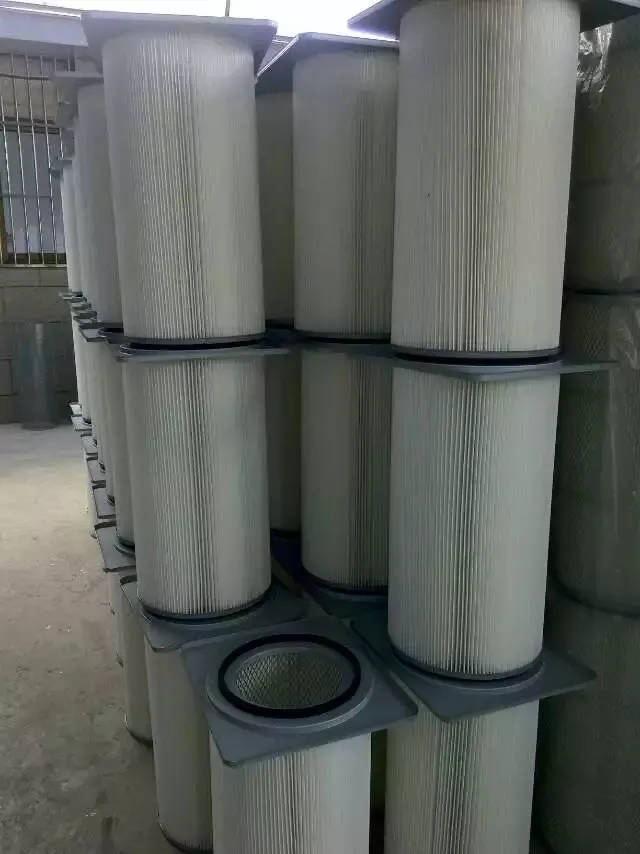 Tel:
+8615930870079
Tel:
+8615930870079
Jul . 30, 2024 03:00 Back to list
Optimizing Performance and Efficiency of Cartridge Filters in Industrial Dust Collection Systems
The Importance of Industrial Dust Collector Cartridge Filters
In the realm of industrial manufacturing and processing, the significance of maintaining a clean and safe workplace cannot be overstated. One of the critical components in achieving this goal is the use of industrial dust collectors, particularly those equipped with cartridge filters. These filters play a pivotal role in reducing airborne contaminants, enhancing air quality, and ensuring compliance with health and safety regulations.
Understanding Dust Collection
Industrial dust is generated from various processes, including cutting, grinding, sanding, and milling. Not only does this dust pose health risks to workers, but it can also lead to equipment malfunctions and a general decline in productivity. Dust collectors are used to capture and filter out these particles, preventing them from entering the workplace environment. Among the various types of dust collection systems, cartridge filters are highly effective and increasingly popular due to their compact size and high filtration efficiency.
Cartridge Filters A Technical Overview
Cartridge filters are cylindrical filters designed to fit into dust collection systems. They are constructed using a diverse range of materials, including polyester, polypropylene, and even specialty fibers, depending on the specific particle types they need to capture. The design allows for a larger surface area, which enhances their capacity to filter dust while maintaining airflow. This makes cartridge filters suitable for various industries, from woodworking and metal fabrication to food processing and pharmaceuticals.
One of the key advantages of cartridge filters is their ability to provide a high level of filtration efficiency. They can capture particles as small as 0.5 microns with an efficiency rating of over 99%. This means that not only are larger dust particles trapped, but even finer particles, which can be potentially harmful to health, are adequately removed from the air.
Benefits of Using Cartridge Filters in Industrial Dust Collectors
industrial dust collector cartridge filters

1. Improved Air Quality The primary benefit of using dust collector cartridge filters is the enhancement of indoor air quality. By effectively removing harmful particles from the air, these filters help create a healthier work environment, thereby reducing the risk of respiratory issues among workers.
2. Increased Equipment Longevity Dust accumulation can cause equipment wear and tear. By keeping the air clean, cartridge filters help protect machinery and tools from dust-related damage, ultimately extending their life and improving reliability.
3. Energy Efficiency Cartridge filters are designed to maintain optimal airflow while minimizing resistance. This not only means less energy is required to operate the dust collection system but also results in reduced operational costs.
4. Simplified Maintenance Modern cartridge filters are engineered for easy replacement and maintenance. Many systems feature advanced cleaning mechanisms, such as pulse jet cleaning, which enhances the filter life and performance without requiring extensive manual intervention.
5. Regulatory Compliance Industries are often subject to strict environmental and workplace safety regulations concerning dust emissions. Using high-quality cartridge filters helps businesses comply with these regulations, avoiding potential fines and legal complications.
Conclusion
In summary, industrial dust collector cartridge filters are invaluable assets in modern manufacturing and processing environments. Their ability to effectively capture harmful dust, improve air quality, and enhance operational efficiency makes them essential for maintaining a safe and productive workplace. As industries continue to prioritize health and environmental standards, the adoption of advanced dust collection solutions, including cartridge filters, is likely to increase, further contributing to safer and more sustainable industrial practices. Investing in quality dust collection systems is not just a regulatory obligation; it is a commitment to the health and well-being of employees and the environment.
-
Types and Applications of Air Filtration CartridgesNewsJul.28,2025
-
The Role of Gas Turbine FiltersNewsJul.28,2025
-
Mastering Air Filter Cartridge UseNewsJul.28,2025
-
Advanced Turbine Filters for Modern Gas TurbinesNewsJul.28,2025
-
Cellulose Air Filter Cartridge Advantages in Dust FiltrationNewsJul.28,2025
-
Cellulose Filters for Air Particle ReductionNewsJul.28,2025

 Email:
Email:





